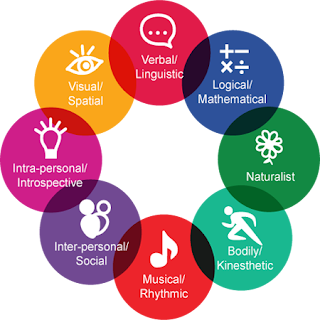The multiple intelligences theory
The theory of multiple intelligences is a concept developed by psychologist Howard Gardner in the early 1980s. According to Gardner, intelligence is not a single, fixed entity, but rather a set of multiple, distinct abilities that are present in varying degrees in each individual. Gardner identified eight different types of intelligences: linguistic, logical-mathematical, spatial, bodily-kinesthetic, musical, interpersonal, intrapersonal, and naturalistic.
Linguistic intelligence refers to the ability to use language effectively, both orally and in writing. Logical-mathematical intelligence involves problem-solving and logical reasoning. Spatial intelligence involves the ability to visualize and manipulate objects in space. Bodily-kinesthetic intelligence is the ability to control and coordinate movements of the body. Musical intelligence involves the ability to recognize and create patterns of rhythm, pitch, and melody. Interpersonal intelligence is the ability to understand and interact effectively with others. Intrapersonal intelligence involves the ability to understand one's own thoughts and emotions. Finally, naturalistic intelligence involves the ability to recognize and classify different species and objects in nature.
The theory of multiple intelligences has gained widespread acceptance and has been applied in various fields, including education, psychology, and business. For example, educators have used the theory to develop teaching strategies that cater to students' individual strengths and learning styles. This approach helps to foster a more inclusive and diverse classroom environment, where students are recognized for their unique abilities and talents.
Moreover, the theory of multiple intelligences has been used in the workplace to improve team dynamics and productivity. By recognizing and leveraging the different strengths and abilities of team members, organizations can create a more effective and cohesive team environment.
In conclusion, the theory of multiple intelligences has revolutionized our understanding of intelligence and has led to a more inclusive and diverse approach to education and work. By recognizing and valuing the unique abilities and talents of each individual, we can create a more equitable and fulfilling society for all.



Comments
Post a Comment